A cornucopia of opportunities for growth and fun awaits the tens of thousands of students matriculating at the University of Washington. But nothing enriches students’ lives more than their interaction with teachers. For it is these professors, lecturers and teaching assistants who are at the very heart of a world-class UW education. Not just by sharing knowledge in the classroom or the lab but by serving as mentors and role models who inspire and push and guide students to be the best they can be—and prepare them for successful careers. As you will see here, the faculty at this renowned, sprawling public university come from a wide variety of backgrounds, fortified with educations and life experiences of their own to connect with their students. What makes these six professors and two teaching assistants stand out is much more than their scholarly studies and achievements in research. They are successful because of the ways they demonstrate their passion for learning and open up to their students.
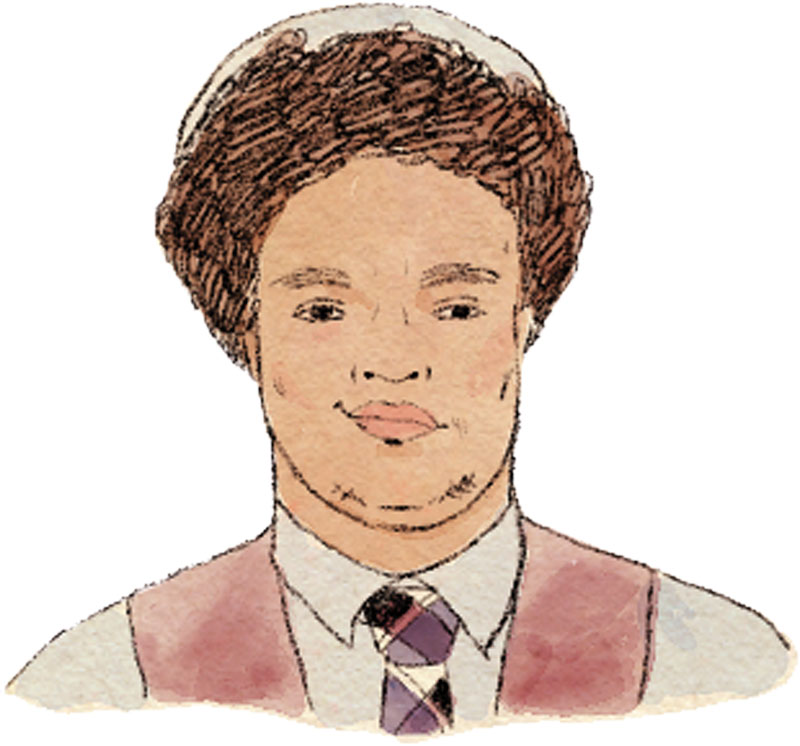 M. Aziz
M. AzizServing up history alongside Black martial arts, M. Aziz finds fresh ways to bring life into their classroom. And for students returning from COVID-19 lockdowns and online learning, it’s a welcome change. Their courses, which focus on Black culture, social-movement history and the practice of martial artistry, reject the rigidity of a typical course curriculum and instead bend to fit the interests and passions of their students. Take it from a former student: “When I entered Dr. A’s classroom, I was immediately met with the tunes of Biggie Smalls and an unusual sense of familiarity, as if the people in the room were friends, not students, not peers, not transplants,” writes student Kye Fitzpatrick, ’24.
Writing utensil of choice: “I write with my treasured pen that has the Schomburg Center for Research in Black Culture logo on it. I worked there for many years.”
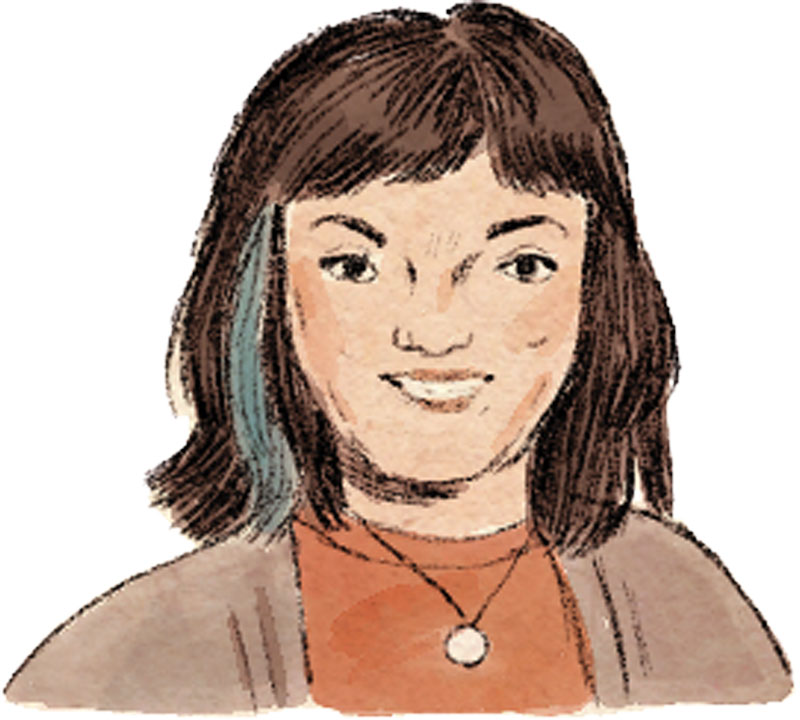 Colleen Craig
Colleen CraigSince she began teaching at the UW in 2010, Colleen Craig’s innovative approach has transformed the Chemistry Department. “Her faculty colleagues—teaching and tenure-track alike—regularly seek her advice,” writes Department Chair Munira Khalil. “She has … implemented a flipped-classroom approach.” That is, Craig’s classroom time is for collaboration and questions, not lectures, something that can lead to new insights. “Colleen has shown me that acknowledging you’re still learning can be a superpower if used correctly,” writes one student.
Advice she appreciated: “You really can ‘fake’ being an authority figure until you feel like one. I was a very nervous new instructor convinced that my students had extrasensory perception and could tell I was a complete fraud.”
Dream job outside of teaching: “When I was young, I wanted to be a novelist or an astrophysicist, but I didn’t really know what that was.”
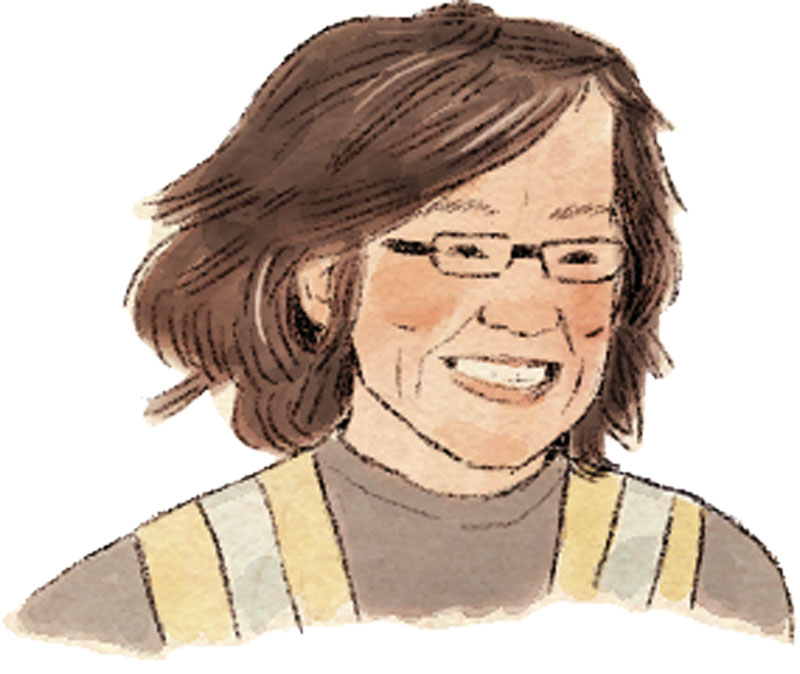 Alison Crowe
Alison CroweBiology professor Alison Crowe has been teaching for 24 years but learns something new every semester. Her courses span the basics of biology to graduate-level material. “My goal is to give students the tools they need to be independent learners with the confidence to approach novel problems,” she says. “I strive to foster a supportive environment that normalizes mistake-making as part of the learning process.” Writes student Dylan Simon: “I always felt like a peer, and I cherished each meeting.”
Recent reading: “Parable of the Sower,” by Octavia Butler, which she calls “eerily relevant for today.”
Favorite travel: “I saw the Oamaru Blue Penguin Colony on New Zealand’s South Island. It’s a biologist’s dream.”
If she weren’t a teacher: “I’d work in a bookstore with a resident cat and read all day.”
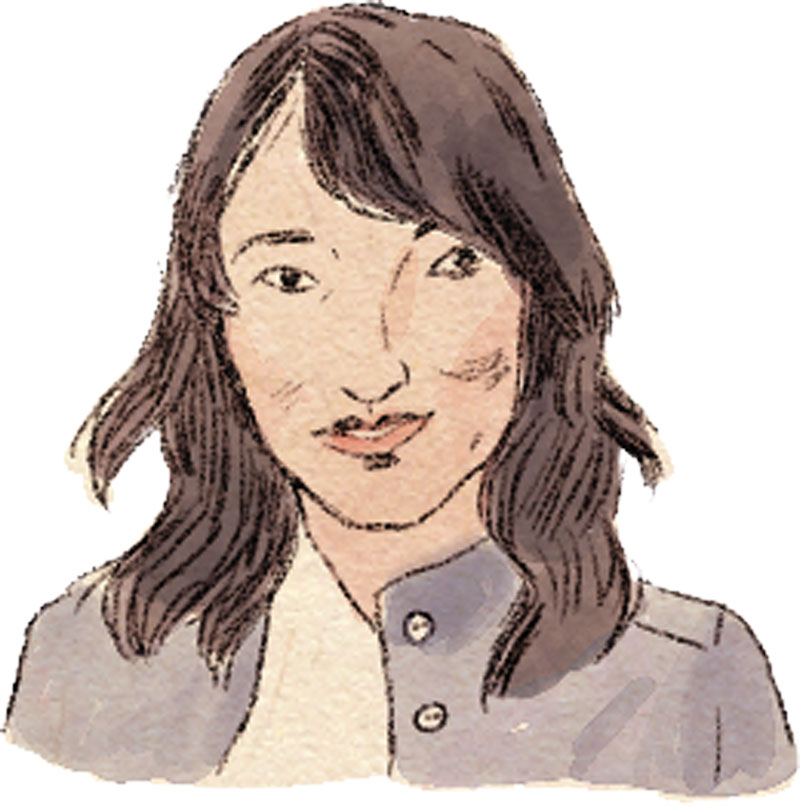 Raissa DeSmet
Raissa DeSmetIn the winter of 2023, Raissa DeSmet taught an interdisciplinary arts class that considered literary, visual and performing art forms and traditions within social contexts. For one assignment, students visited a museum of their choice, taking selfies and noticing their surroundings. What did the space feel like? Did students feel welcomed? What groups might feel unwelcome? “I encourage students to think of the classroom in much the same way that they would a studio: as a space of experimentation and collaboration,” she explains. “Raissa’s energy represents why students choose to come to UW Bothell,” writes student Isabeau Rosen, ’24. “Her compassionate approach to teaching is fundamental to the unique educational experience of Bothell students.”
Recent kitchen creations: “Two failed gluten-free chocolate cakes, but I am feeling optimistic about take three.”
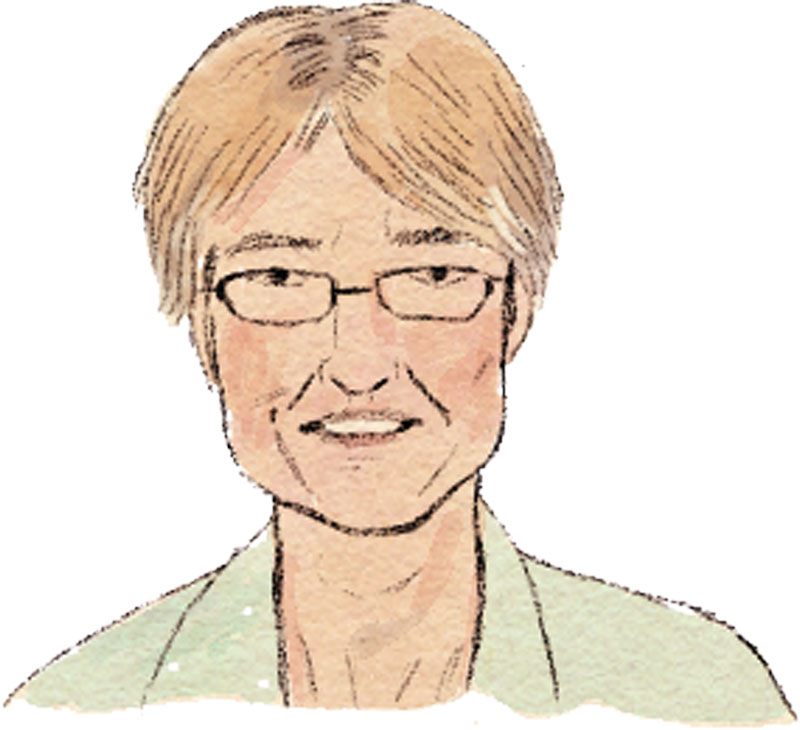 Louisa Mackenzie
Louisa MackenzieLouisa Mackenzie is a first-generation college grad, a Scottish immigrant and a queer professor with a keen eye for underrepresented perspectives. One student, Rinav Raveendran Kathuri, writes that Mackenzie was on the “opposite side of the political spectrum” from his own views. But Mackenzie’s interpretations of culture and “intellectual flexibility” refreshed his outlook on ideology in higher education. “I never once felt that certain political values were being imposed on me,” Kathuri writes.
What Mackenzie would be if not a teacher: “[As a kid,] I really wanted to be a spy until I realized it wasn’t like in the cartoons. I still think a career in diplomacy would be cool.”
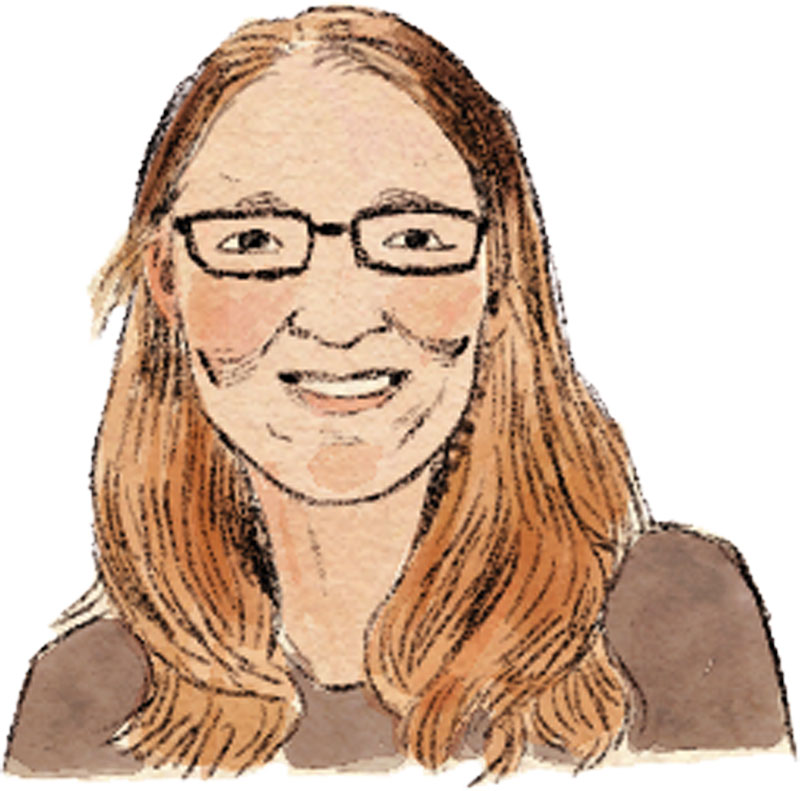 Emma Rose
Emma RoseEmma Rose brings industry experience and expertise as a technical scholar in human-centered design and engineering to the classroom. Her research and teaching are motivated by a commitment to social justice and designing for inclusion. Her students say Rose puts so much effort into her project-based classes, they feel compelled to work just as hard.
Best advice: “Communicating your rationale to students improves everyone’s experience. Explaining to students why I want them to do something or why I teach the way I do has worked wonders.”
Fun fact: Her menagerie at home includes Otis the dog, Nibbler the hamster and two roosters she calls “the boys.”
Outside of work: She’s a school board director. That’s in addition to hanging out with her children, spending time in nature and dreaming about getting more pets.
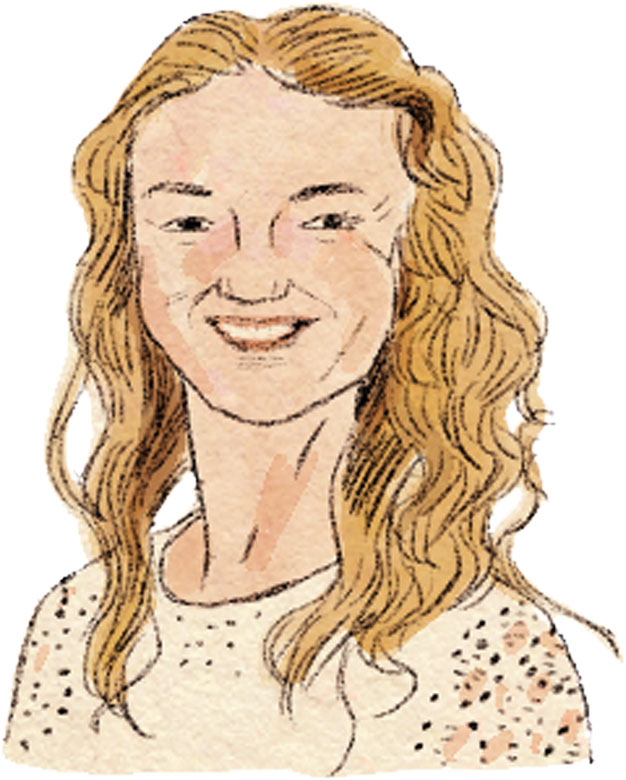 Carly Gray
Carly GrayCarly Gray is one of those people who tells you that if she wasn’t leading a college classroom, she’d be teaching grade school. Not baking cakes or flying planes, just … teaching. This passion for sharing knowledge is what her students and colleagues love about her. “Even as I brought forth an endless tsunami of questions, she patiently provided succinct and coherent answers,” writes student Rachel Kim. “I am forever grateful [to Gray for] showing me what I am truly capable of in the field of psychology.”
Her pandemic addition: A 4-year-old mutt named Toby.
One of Gray’s hobbies: “I love spending a Saturday playing multiple rounds of a complex board game like Spirit Island, Scythe or Ark Nova.”
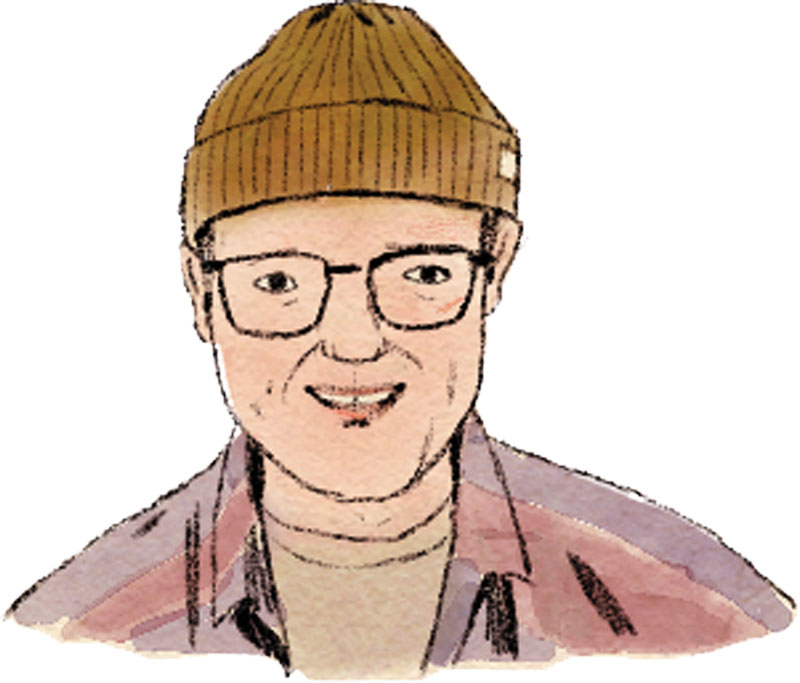 Eric Villiers
Eric VilliersEric Villiers knows many of his students come to the first day of class worried but works quickly to put them at ease. “Eric has been a prominent figure in my college experience because of his patience, active listening and ability to foster a sense that my learning experience is ever-expanding,” writes student Lilian Nguyen. A former preschool teacher who was called “Mr. Eric” by the children, Villiers is highly admired for his knowledge of theater, dance and performance.
Fun fact: He worked as a bookseller to pay for his MFA degree.
A recent read: “Future Home of the Living God,” by Louise Erdrich, which he calls “hauntingly poetic and heartbreaking.”
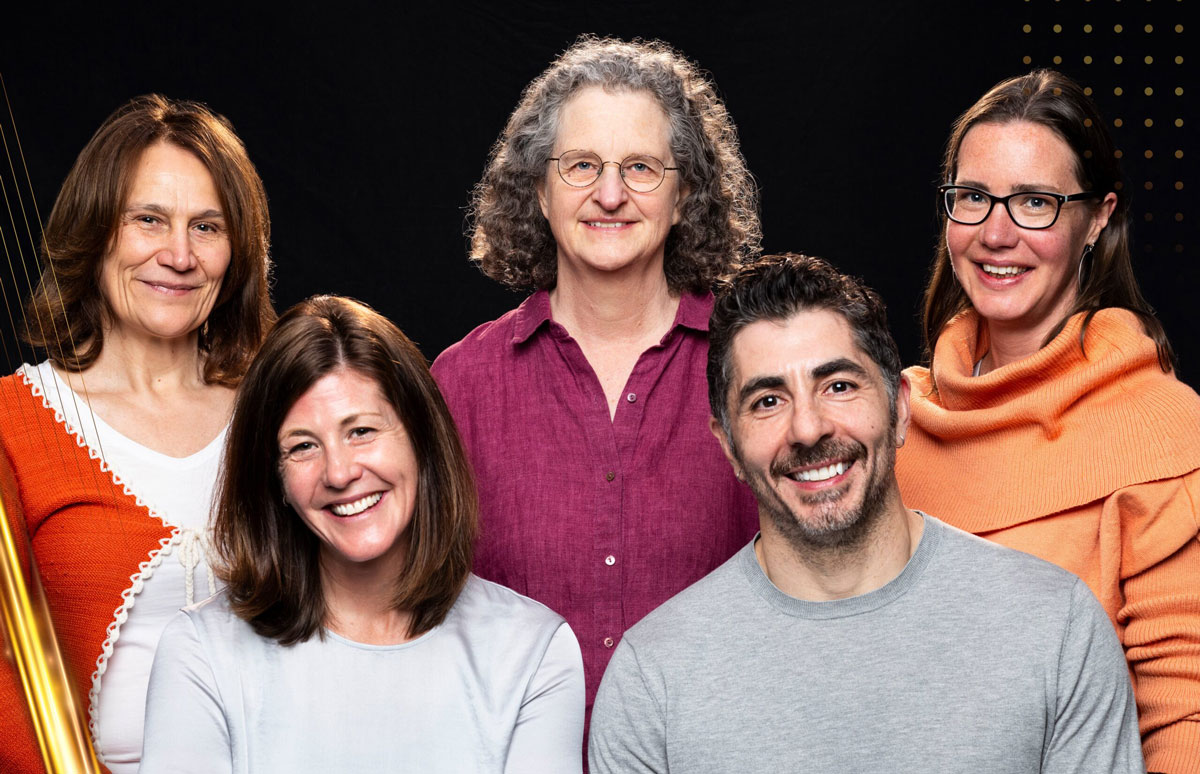
The GEODUC program bolsters representation and recruitment of underrepresented groups in the marine sciences by reaching out to and mentoring community college transfer students. The team’s work has helped the College of the Environment develop and test mechanisms for recruiting, supporting, retaining, and graduating (with distinction) more students from underrepresented, underserved communities.
Jane Dolliver, Program Manager, College of the Environment, UW Seattle
Jose M. Guzman, Associate Teaching Professor, School of Aquatic and Fishery Sciences & Marine Biology, College of the Environment, UW Seattle
Kerry-Ann Naish, Professor, School of Aquatic and Fishery Sciences & Marine Biology, College of the Environment, UW Seattle
Mikelle Nuwer, Associate Teaching Professor, School of Oceanography, College of the Environment, UW Seattle
LuAnne Thompson, Professor, School of Oceanography, College of the Environment, UW Seattle
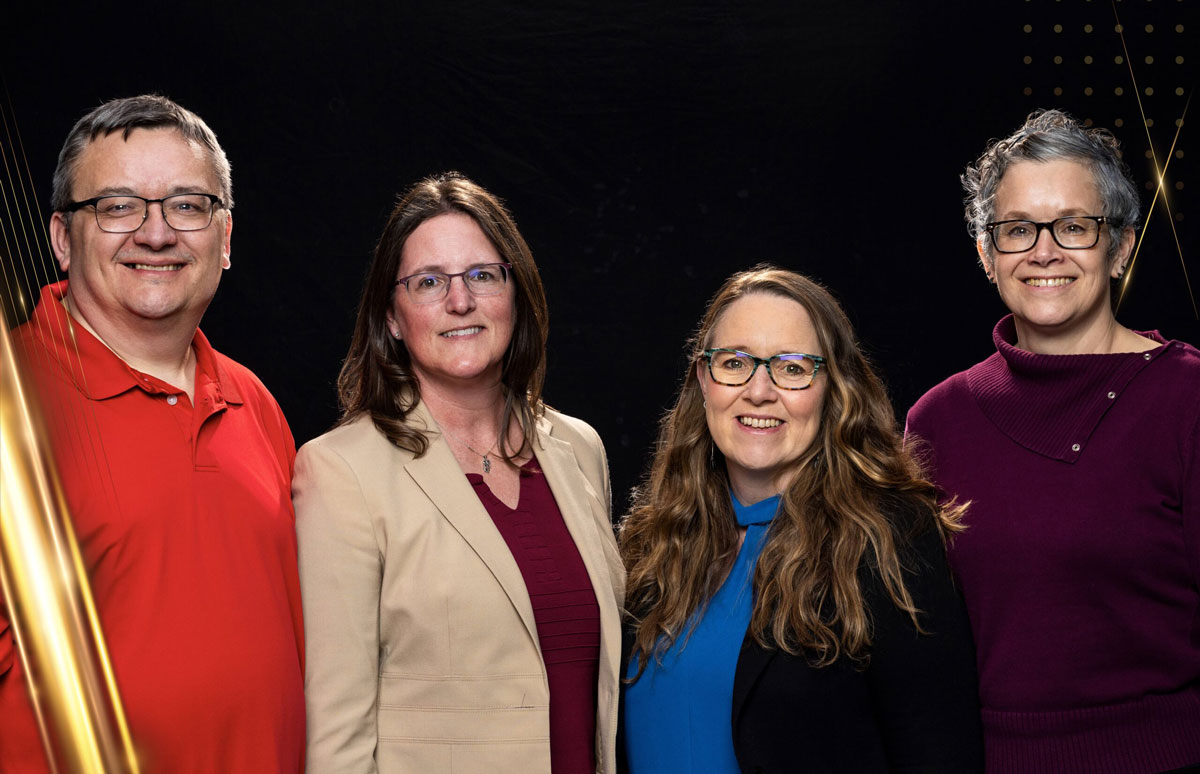
Using a human-centered design process, the DLUX team trained undergraduate student researchers to conduct usability studies on faculty members’ digital teaching materials. Student researchers used the UW Digital Learning Alliance’s Hybrid/Online Learning rubric as the basis of their evaluation and provided faculty members with feedback that helped them to improve their teaching in digital environments. In addition to advancing evidence-based teaching, the collaborations strengthened engagement between students and faculty members.
Darcy A. Janzen, Director, Office of Digital Learning, Academic Affairs, UW Tacoma
Chris Lott, Learning Designer, Office of Digital Learning, Academic Affairs, UW Tacoma
Emma J. Rose, Associate Professor, Culture, Arts and Communication, School of Interdisciplinary Arts & Sciences, UW Tacoma
Libi Sundermann, Teaching Professor, Politics, Philosophy and Public Affairs, School of Interdisciplinary Arts & Sciences, UW Tacoma
We asked the 2024 Teaching Award recipients for a few random words to create a “Mad Lib.” Here’s what they wrote!
It was a pulchritudinous day in the UW Quad, and campus looked positively spiky. The smell of cake wafted through the air, the photomultiplier tubes were looking green as ever, and Dubs was up to his loudest antics. A group of prickly prospective students was on a campus tour, looking for the flyest things the UW had to offer. Just their luck! The 2024 Distinguished Teaching Award recipients jauntily arrived, ready to display their fuzzy teaching skills as hungrily as they could.
Learn more about this year’s award recipients here.